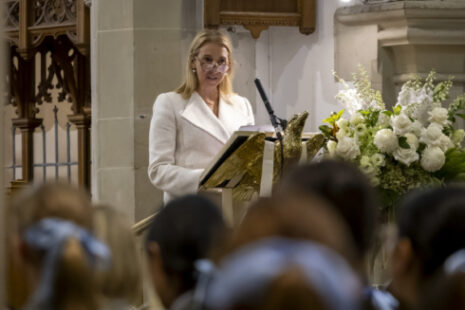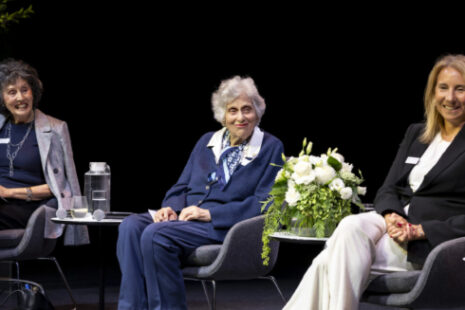Digital Distraction

Do you take better care of your phone than yourself? Minimise the digital distraction and de-clutter your bedroom for a clearer mind and sounder sleep explains Principal, Mrs Michelle Carroll
Since having the opportunity to hear co-founder and chief of the Huffington Post, Arianna Huffington’s Address at a conference I attended earlier in the year, I have become an avid reader of the Huffington Post and recently read Arianna’s newly released book, Thrive (Ebury Publishing, 2015).
During her Address, Arianna urged us to keep our bedside tables sacred – a single flower, a candle, a real alarm clock, a real book. She challenged us all with taking better care of our smart phones than ourselves. Who has not had moments of concern when your phone has little charge left? Where can I plug it in? When?
Huffington tested us to think about whether we have the same sense of urgency about re-charging ourselves as our phones. Huffington went onto draw attention to teenagers that use beds like command stations, continually connected with friends well into the night on a multitude of smart devices, behaviour that essentially devalues the benefits of sleep.
“Teenagers who spend more than 30 minutes texting after lights out are missing out on essential sleep and their academic performance is suffering the consequences.” Professor of Neuroscience and Neurology at Rutgers University, Xue Ming, says the effect of “blue light” emitted from smartphones and tablets is intensified in dark rooms, delaying melatonin release and making it more difficult to fall asleep.
The Rutgers University research team led by Professor Ming found that students who turned off their devices or messaged for less than 30 minutes after lights out slept longer, reported less daytime sleepiness and performed significantly better academically than those who kept messaging for longer.
Interestingly, says Ming, although girls reported more messaging overall and more daytime sleepiness, they performed better academically than boys, which she attributes to the fact that girls mainly text before lights out.
The American Academy of Paediatrics also reports that screen-based media use has risen dramatically, with studies showing the average child aged eight to 18 now uses electronic devices for seven and a half hours per day.
Professor Ming said she was prompted to study how messaging after lights out contributes to sleep problems and falling academic grades after noticing increasing smartphone use by her patients with sleep problems. Ming says that adolescents “are not receiving the optimal amount of sleep”, advising they should be getting eight and a half hours of sleep a night. “Sleep is not a luxury; it’s a biological necessity.”
Clearly, parents have a role to play in creating appropriate family rules for phone use after lights out in the evening. Charging phones on the kitchen bench and purchasing a ‘real alarm clock’ as suggested by Huffington is perhaps a good starting point, and one we as adults could also effectively role model.





